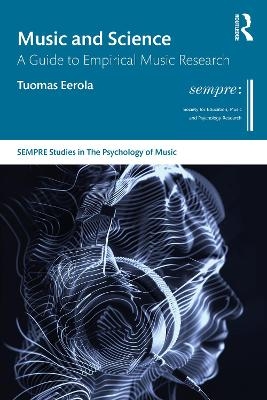
Music and Science
A Guide to Empirical Music Research
Seiten
2024
Routledge (Verlag)
978-1-032-27706-6 (ISBN)
Routledge (Verlag)
978-1-032-27706-6 (ISBN)
Music and Science provides an introduction and practical guidance for a scientific and systematic approach to music research. The book will be essential reading for students undertaking empirical projects, particularly in the area of music psychology but also in digital humanities and media studies.
Music and Science provides an introduction and practical guidance for a scientific and systematic approach to music research. Students with a background in humanities may find the field hard to tackle and this accessible guide will show them how to consider using an appropriate range of methods, introducing them to current standards of research practices including research ethics, open access, and using computational tools such as R for analysis. These research methods are used to identify the underlying patterns behind the data to better understand how music is constructed and how we are influenced by music. The book focusses on music perception and the experience of music as approached through empirical experiments and by analysing music using computational tools spanning audio and score materials. The process of research, collaboration, and publishing in this area of study is also explained and emphasis is given to transparent and replicable research principles. The book will be essential reading for students undertaking empirical projects, particularly in the area of music psychology but also in digital humanities and media studies.
Music and Science provides an introduction and practical guidance for a scientific and systematic approach to music research. Students with a background in humanities may find the field hard to tackle and this accessible guide will show them how to consider using an appropriate range of methods, introducing them to current standards of research practices including research ethics, open access, and using computational tools such as R for analysis. These research methods are used to identify the underlying patterns behind the data to better understand how music is constructed and how we are influenced by music. The book focusses on music perception and the experience of music as approached through empirical experiments and by analysing music using computational tools spanning audio and score materials. The process of research, collaboration, and publishing in this area of study is also explained and emphasis is given to transparent and replicable research principles. The book will be essential reading for students undertaking empirical projects, particularly in the area of music psychology but also in digital humanities and media studies.
Tuomas Eerola is Professor of Music Cognition in the Department of Music, University of Durham
1 Introduction
2 History
3 Empirical Music Research in the 21st Century
4 Methods and Research Design
5 Sources of Information
6 Organising and Summarising Data
7 Statistical Analysis
8 Reporting and Craftsmanship
9 Analysis of Scores and Performances
10 Analysis of Audio
11 Corpus Studies
12 Reflections, Challenges, and Future Prospects
| Erscheinungsdatum | 18.10.2024 |
|---|---|
| Reihe/Serie | SEMPRE Studies in The Psychology of Music |
| Zusatzinfo | 8 Tables, black and white; 42 Line drawings, black and white; 4 Halftones, black and white; 46 Illustrations, black and white |
| Verlagsort | London |
| Sprache | englisch |
| Maße | 156 x 234 mm |
| Gewicht | 548 g |
| Themenwelt | Kunst / Musik / Theater ► Musik |
| Geisteswissenschaften ► Psychologie ► Allgemeine Psychologie | |
| Geisteswissenschaften ► Psychologie ► Verhaltenstherapie | |
| ISBN-10 | 1-032-27706-8 / 1032277068 |
| ISBN-13 | 978-1-032-27706-6 / 9781032277066 |
| Zustand | Neuware |
| Informationen gemäß Produktsicherheitsverordnung (GPSR) | |
| Haben Sie eine Frage zum Produkt? |
Mehr entdecken
aus dem Bereich
aus dem Bereich
Techniken der Verhaltenstherapie
Buch (2024)
Julius Beltz GmbH & Co. KG (Verlag)
CHF 48,95


